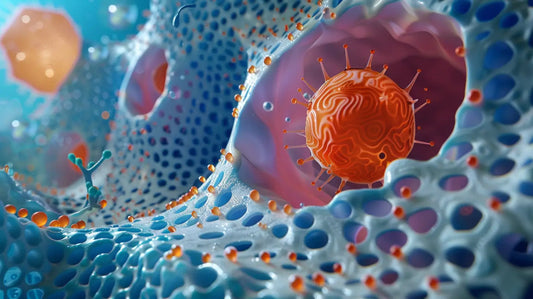Small Intestinal Bacterial Overgrowth (SIBO): Can Hydrogen Water Help?
Updated
John Smith
Staff Writer
Our Commitment to Accuracy and Objectivity
Ocemida is committed to delivering reliable and unbiased information. Our editorial team, comprised of experienced editors and medical experts, meticulously reviews every article and guide to ensure the content is accurate, up-to-date, and free from bias.
Rigorous Fact-Checking Process
To uphold the highest standards of accuracy, we adhere to the following fact-checking guidelines:
Trusted Sources: We only cite reputable sources, such as peer-reviewed journals, government reports, academic and medical associations, and interviews with credentialed healthcare professionals.
Evidence-Based: All scientific claims and data are supported by at least one credible source. Each article includes a comprehensive bibliography with full citations and links to the original sources.
Internal Linking: While we may include internal links to other relevant Ocemida pages for better navigation, these links are never used as primary sources for scientific information.
Expert Review: A member of our medical and scientific expert team provides a final review of the content and cited sources for all articles and product reviews related to medical and health topics.
By following these rigorous standards, Ocemida strives to provide readers with reliable and informative content.
Share with a friend
Key Takeaways
🟢 SIBO occurs when excessive bacteria from the colon inappropriately grow in the small intestine, causing digestive symptoms like bloating, gas, and irregular bowel movements.
🟢 The condition can be caused by structural gut abnormalities, motility problems, certain medications like antibiotics and PPIs, or underlying conditions such as celiac disease and IBS.
🟢 Bacteria involved in SIBO produce hydrogen gas when fermenting food, which is why hydrogen breath tests are used for diagnosis.
🟢 While hydrogen water shows some promise in early animal studies for reducing excess hydrogen production by gut bacteria, research specifically relating to SIBO treatment is still in its infancy.
🟢 Hydrogen water should not replace standard SIBO treatments, and patients should consult their healthcare provider before trying it, as the underlying cause of SIBO needs proper medical evaluation and treatment.
Small intestinal bacterial overgrowth (SIBO) is a troublesome digestive condition where excessive bacteria from the colon proliferate in the small intestine. This overgrowth can disrupt digestion and absorption, leading to symptoms like bloating, gas, abdominal pain, diarrhea, and constipation. Treatment options are available, but could a solution be as simple as drinking hydrogen water?
Understanding SIBO
Our gut harbours trillions of bacteria, known as the gut microbiome, that play a critical role in our health. With SIBO, the normal balance of these bacteria is thrown off. Instead of remaining concentrated in the colon, bacteria migrate to the small intestine, where they shouldn't be in high numbers.
Causes of SIBO
- Structural Abnormalities: Conditions like diverticulosis or surgery that alters the normal anatomy of the gut.
- Motility Problems: Disorders affecting the muscular contractions that move food through the digestive system (e.g., scleroderma or diabetes).
- Medications: Antibiotics or proton pump inhibitors (PPIs) can negatively impact gut bacteria.
- Other: Celiac disease, irritable bowel syndrome (IBS), and other health conditions can increase the risk of SIBO.
The Gut-Hydrogen Connection
Certain bacteria in the gut, especially when overgrown in the small intestine, produce hydrogen gas as they ferment food. SIBO is often diagnosed using a hydrogen breath test. The patient drinks a solution (like lactulose), and any excess hydrogen they exhale suggests bacterial overgrowth.
Hydrogen Water: A Potential SIBO Aid?
Hydrogen water is simply water infused with hydrogen gas. Emerging research suggests hydrogen may provide several health benefits. Could it also help fight SIBO? Here's what early studies are uncovering:
-
Possible Benefits: Limited studies suggest hydrogen water may decrease excess hydrogen production by gut bacteria, possibly reducing SIBO-related symptoms. Animal models support this idea but it's important to remember they don't always translate fully to humans.
- Drinking hydrogen water and intermittent hydrogen gas exposure, but not lactulose or continuous hydrogen gas exposure, prevent 6-hydorxydopamine-induced Parkinson's disease in rats - NCBI: https://www.ncbi.nlm.nih.gov/pmc/articles/PMC3407490/
- Different effects of hydrogen-rich water intake and hydrogen gas inhalation on gut microbiome and plasma metabolites of rats in health status - PMC - NCBI: https://www.ncbi.nlm.nih.gov/pmc/articles/PMC9068821/
-
Research Gaps: While promising, research on hydrogen water and SIBO is still in its infancy. Larger, well-designed human studies are needed to fully understand its impacts.
Should You Try Hydrogen Water for SIBO?
Important: Before experimenting with hydrogen water, talk to your doctor, especially if you have an underlying health condition. Here's why:
- Unproven Therapy: Research on hydrogen water for SIBO is very limited. It's not a standard treatment or replacement for current therapies.
- Potential Side Effects: Hydrogen water is generally considered safe, but mild side effects like bloating or headache have been reported in a small number of cases.
- Underlying causes: It's essential to see your doctor to diagnose SIBO correctly and explore underlying problems in your case.
The Bottom Line
Hydrogen water is generating excitement but more research is necessary to establish its role in managing SIBO. If you're struggling with SIBO, speak to your doctor about effective treatments and discuss whether further investigating hydrogen water could be right for you.
Table of Contents










































